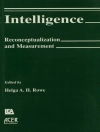In recent years there has been steadily increasing interest in motor behavior and a growing awareness that a person not only has to know what to do in a particular situation, but also how to do it. The question of how actions are performed is of central concern in the area of motor control. This volume provides an advanced-level treatment of some of the main issues. Experiments concerned with basic processes of motor control typ- ically examine very simple movements. At first glance these tasks appear to be far removed from real-world tasks, but it should be kept in mind that they are not studied for their own sake. One of the main reasons for using them is the well-recognized, but sometimes questioned, scientific principle that basic laws may be discovered more easily in simple situations than i Ii complex situations. Another reason is that the simple tasks studied constitute building blocks of more complex tasks. For example, some complex skills can be consid- ered as consisting of sequences of aimed movements, although, as no one would doubt, knowing everything about these individual movements does not mean knowing everything about, for example, typing. The first two chapters of the present volume focus on behavioral and physiological studies of programming and preparation of move- ments. In the first chapter D. Rosenbaum introduces the concept of a motor program that is set up in advance of the overt movement.
Herbert Heuer & Uwe Kleinbeck
Motor Behavior [PDF ebook]
Programming, Control, and Acquisition
Motor Behavior [PDF ebook]
Programming, Control, and Acquisition
¡Compre este libro electrónico y obtenga 1 más GRATIS!
Idioma Inglés ● Formato PDF ● ISBN 9783642697494 ● Editor Herbert Heuer & Uwe Kleinbeck ● Editorial Springer Berlin Heidelberg ● Publicado 2012 ● Descargable 3 veces ● Divisa EUR ● ID 6330681 ● Protección de copia Adobe DRM
Requiere lector de ebook con capacidad DRM












